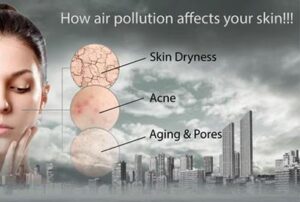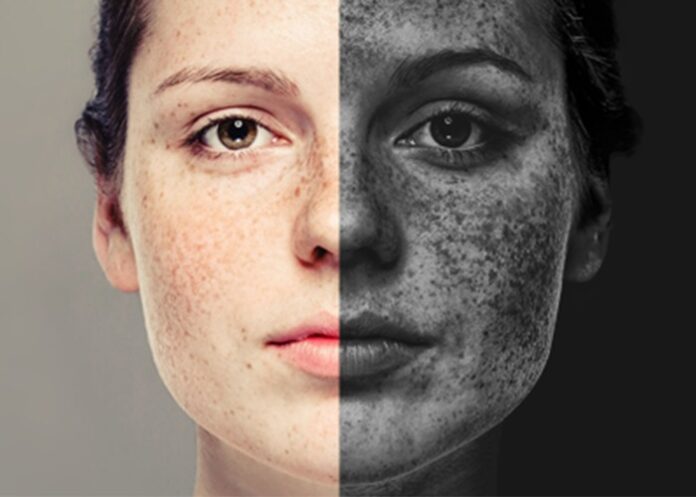Air Pollution’s Negative Effects on Your Skin
In June of last year, devastating wildfires swept through the Canadian province of Quebec, casting large plumes of acrid smoke across North America. Remarkably, over 300 miles away in Boston, dermatologist Shadi Kourosh observed an unusual surge in dermatology visits. Typically, patients with eczema or itchy skin issues would seek care during winter, but an unexpected increase occurred in the midst of summer. As Boston, like other northern U.S. cities, experienced elevated air pollution due to the wildfires, Kourosh suspected a potential correlation with skin conditions.
To investigate, her team gathered five years of airborne particulate matter and carbon monoxide data from the U.S. Environmental Protection Agency, aligning it with anonymized patient records from Massachusetts General Brigham, the state’s largest hospital group. The findings revealed a connection between air pollution levels and hospital visits for atopic dermatitis, the most common form of eczema. In June 2022, when carbon monoxide levels were below 0.2 parts per million, dermatology clinic visits were under 20. However, during the wildfires in June 2023, with carbon monoxide levels at 0.6 parts per million, dermatology visits soared to 160.
Beyond acute events like wildfires, day-to-day pollution from vehicles and industry can also impact the skin. Studies from China in 2021 found a link between elevated baseline air pollution levels and conditions like eczema in children. The skin, being exposed to various pollutants, can suffer from inflammation and accelerated aging. Individuals with weakened skin barriers, like those with eczema, are particularly vulnerable. 
While air pollution is often associated with health issues like asthma and lung cancer, its impact on the skin is significant. Over 99% of the global population resides in areas where pollution levels surpass World Health Organization guidelines. Severe skin conditions such as atopic dermatitis can severely affect the quality of life for those affected. Sleep disturbances, anxiety, depression, and social withdrawal are common consequences.
Carsten Flohr of the British Association of Dermatologists emphasizes the importance of addressing the skin’s impact, stating that even though it may not be fatal, severe skin conditions can lead to a horrendous quality of life. Air pollution has been linked to a range of health problems, but its impact on the skin should not be overlooked. As more than 99% of the world’s population resides in areas with excessive pollution, addressing severe skin conditions is crucial.
Atopic dermatitis, if severe, can lead to a diminished quality of life, causing sleep disturbances, anxiety, depression, and social withdrawal. Long-term exposure to air pollution may make individuals more sensitive to other allergens, triggering the immune system into a hyper-alert state. Protection measures, such as staying indoors during times of elevated pollution or using masks, can mitigate respiratory symptoms and protect the skin.
In areas prone to wildfire smoke or high pollution, protective barriers like masks and clothing covering arms and legs can help. For everyday protection, air filters at home, mineral sunscreens with zinc or titanium, and a thorough cleansing routine are recommended. Kourosh emphasizes the need for governments to address urban air pollution through green transportation policies and measures to mitigate events like wildfires, emphasizing the broader impact of climate change on human health.
